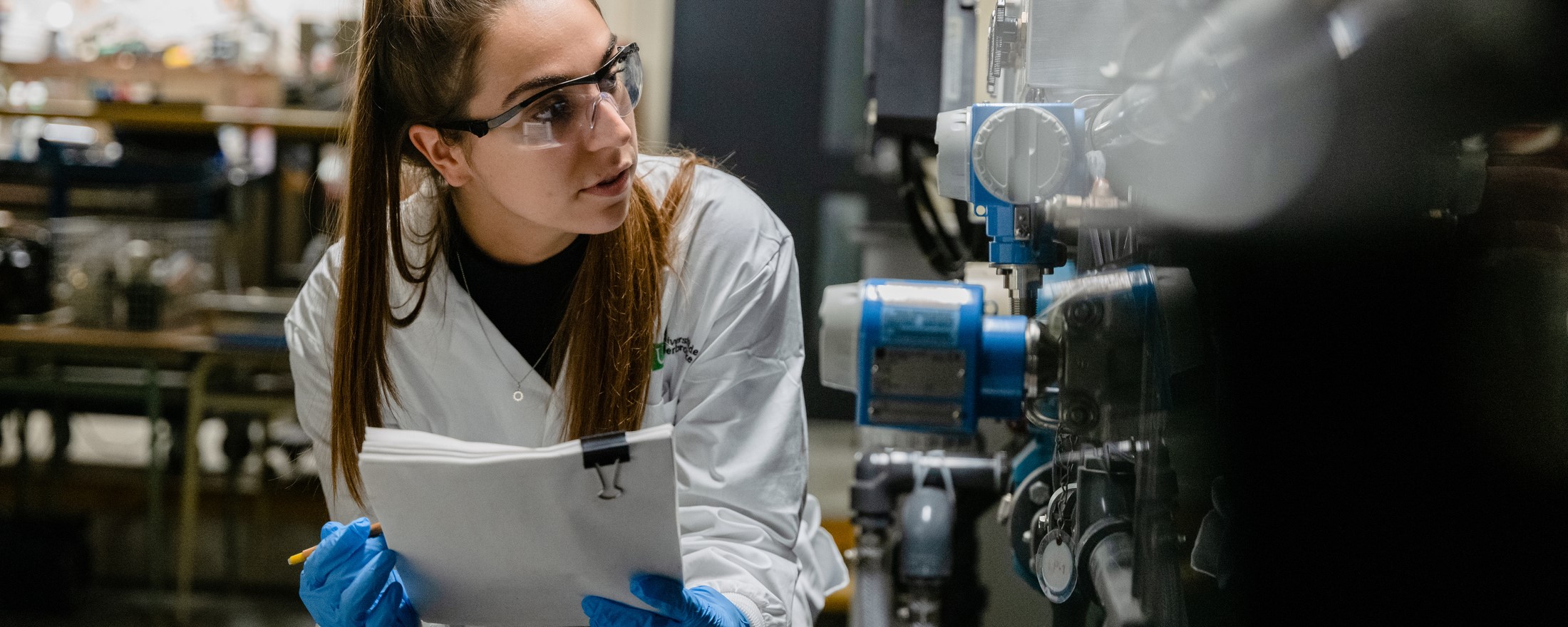Matthew Barbour
Professeur, Faculté des sciences
FSCI Département de biologie
Présentation
Sujets, disciplines ou intérêts de recherche
food webs, ecological networks, evolutionary ecology, plant-insect interactions
Diplômes
- (2011-2016). Ph.D. Zoology. University of British Columbia. Vancouver, BC, Canada.
- (2008-2011). M.S. Ecology. San Diego State University. San Diego, CA, États-Unis.
- (2003-2007). B.A. Biology. Pomona College. Claremont, CA, États-Unis.
Expériences académiques
- Assistant Professor. (2022-). Université de Sherbrooke. Sherbrooke, QC, Canada.
- Postdoctoral Researcher. (2016-2022). University of Zurich. Zurich, Suisse.
Publications
Articles
- Laina Weiss, Matthew Barbour, Tess Nahanni Grainger. (2025). An experimental test of the effects of temperature and resource quality on carrying capacity. Biology Letters. DOI
- Tess N. Grainger, Keila Stark, Chuliang Song, Matthew A. Barbour, Rachel M. Germain. (2025). The Equilibrium Conundrum. Ecology Letters. DOI
- Klementyna A. Gawecka, Matthew A. Barbour, James M. Bullock, Jordi Bascompte. (2025). The Roles of Space and Food‐Web Complexity in Mediating Ecological Recovery. Ecology Letters. DOI
- Matthew A. Barbour, Frédérick St‐Pierre. (2025). Plasticity in a key life‐history trait contributes to population cycles in an insect herbivore. Journal of Animal Ecology. DOI
- Matthew A Barbour, Cintia Beatriz Pérez-López. (2025). Linking plant genes to arthropod community dynamics: current progress and future challenges. Plant And Cell Physiology. DOI
- Matthew A. Barbour. (2023). Evolution of ontogenetic niches promotes species coexistence in a surprising way. Journal of Animal Ecology. DOI
- Chongmeng Xu, Yasuhiro Sato, Misako Yamazaki, Marcel Brasser, Matthew A. Barbour, Jordi Bascompte, Kentaro K. Shimizu. (2023). Genome-wide association study of aphid abundance highlights a locus affecting plant growth and flowering in Arabidopsis thaliana. Royal Society Open Science. DOI
- Lesley T. Lancaster, Zachary L. Fuller, David Berger, Matthew A. Barbour, Sissel Jentoft, Maren Wellenreuther. (2022). Understanding climate change response in the age of genomics. Journal of Animal Ecology. DOI
- Matthew A. Barbour, Daniel J. Kliebenstein, Jordi Bascompte. (2022). A keystone gene underlies the persistence of an experimental food web. Science. DOI
- Pol Capdevila, Iain Stott, Imma Oliveras Menor, Daniel B. Stouffer, Rafael L. G. Raimundo, Hannah White, Matthew Barbour, Roberto Salguero‐Gómez. (2021). Reconciling resilience across ecological systems, species and subdisciplines. Journal of Ecology. DOI
- Matthew A. Barbour, Jean P. Gibert. (2021). Genetic and plastic rewiring of food webs under climate change. Journal of Animal Ecology. DOI
- Matthew A. Barbour, Christopher J. Greyson-Gaito, Arezoo Sotoodeh, Brendan Locke, Jordi Bascompte. (2020). Loss of consumers constrains phenotypic evolution in the resulting food web. Evolution Letters. DOI
- Denon Start, Matthew A. Barbour, Colin Bonner. (2020). Urbanization reshapes a food web. Journal of Animal Ecology. DOI
- Matthew A. Barbour, Sonya Erlandson, Kabir Peay, Brendan Locke, Erik S. Jules, Gregory M. Crutsinger. (2019). Trait plasticity is more important than genetic variation in determining species richness of associated communities. Journal of Ecology. DOI
- Lorraine Ludwig, Matthew A. Barbour, Jennifer Guevara, Leticia Avilés, Angélica L. González. (2018). Caught in the web: Spider web architecture affects prey specialization and spider-prey stoichiometric relationships. Ecology and Evolution. DOI
- Matthew M. Osmond, Matthew A. Barbour, Joey R. Bernhardt, Matthew W. Pennell, Jennifer M. Sunday, Mary I. O’Connor. (2017). Warming-Induced Changes to Body Size Stabilize Consumer-Resource Dynamics. The American Naturalist. DOI
- Christopher J. Greyson-Gaito, Matthew A. Barbour, Mariano A. Rodriguez-Cabal, Gregory M. Crutsinger, Gregory H.R. Henry. (2016). Freedom to move: Arctic caterpillar (Lepidoptera) growth rate increases with access to new willows (Salicaceae). The Canadian Entomologist. DOI
- Breanna J. Putman, Matthew A. Barbour, Rulon W. Clark. (2016). The Foraging Behavior of Free-ranging Rattlesnakes ( Crotalus oreganus ) in California Ground Squirrel ( Otospermophilus beecheyi ) Colonies. Herpetologica. DOI
- Matthew A. Barbour, Miguel A. Fortuna, Jordi Bascompte, Joshua R. Nicholson, Riitta Julkunen-Tiitto, Erik S. Jules, Gregory M. Crutsinger. (2016). Genetic specificity of a plant–insect food web: Implications for linking genetic variation to network complexity. Proc Natl Acad Sci USA. DOI
- Heather L. Slinn, Matthew A. Barbour, Kerri M. Crawford, Mariano A. Rodriguez-Cabal, Gregory M. Crutsinger. (2016). Genetic variation in resistance to leaf fungus indirectly affects spider density. Ecology. DOI
- Matthew A. Barbour, Mariano A. Rodriguez-Cabal, Elizabeth T. Wu, Riitta Julkunen-Tiitto, Carol E. Ritland, Allyson E. Miscampbell, Erik S. Jules, Gregory M. Crutsinger. (2015). Multiple plant traits shape the genetic basis of herbivore community assembly. Funct Ecol. DOI
- M. A. Barbour, R. W. Clark. (2012). Ground squirrel tail-flag displays alter both predatory strike and ambush site selection behaviours of rattlesnakes. Proceedings of the Royal Society B: Biological Sciences. DOI
- Rulon W. Clark, Sean Tangco, Matthew A. Barbour. (2012). Field video recordings reveal factors influencing predatory strike success of free-ranging rattlesnakes (Crotalus spp.). Animal Behaviour. DOI
- Matthew A. Barbour, Rulon W. Clark. (2012). Diel Cycles in Chemosensory Behaviors of Free-Ranging Rattlesnakes Lying in Wait for Prey. Ethology. DOI
- Sanjay Joshi, Ryan Johnson, Aaron Rundus, Rulon Clark, Matthew Barbour, Donald Owings. (2011). Robotic Squirrel Models. IEEE Robot. Automat. Mag. DOI
Autres contributions
Cours enseignés à l'UdeS
- ENT104 - Entomologie. (2025-2026). (2CR).
- ECL309 - Techniques d'échantillonnage en écologie. (2025). (1CR).
- ECL307 - Travaux pratiques d'écologie. (2023-2024). (1CR).
- ENT102 - Entomologie. (2024). (2CR).
Divers
- Matthew A. Barbour. (2019). Ecological character displacement destabilizes food webs.
- Matthew A. Barbour, Christopher J. Greyson-Gaito, Arezoo Sootodeh, Brendan Locke, Jordi Bascompte. (2019). Phenotypic evolution is more constrained in simpler food webs.
- Matthew Barbour, Sonya Erlandson, Kabir Peay, Brendan Locke, Erik S. Jules, Gregory M. Crutsinger. (2017). Partitioning plant genetic and environmental drivers of above and belowground community assembly.
